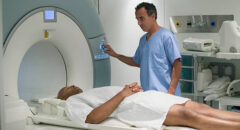
MS is an unpredictable disease with currently no known cure, but there are different ways that physicians approach the situation in order to try and lessen the severity of the flare-up.
Steroids, are hormones designed to reduce inflammation and can help with pain and are given when various kinds of diseases and conditions flare-up, one of them being Multiple Sclerosis. These are quite helpful to people who are experiencing difficulties with their basic functions like walking and can ease pain. Steroids are usually given as soon as a flare-up is noticed to get symptoms under control quickly and provide comfort, if possible. Though they can provide a lot of relief, they are typically not favored by physicians and should not be used more than three times a year due to their side effects.
Another form of treatment, according to the National Multiple Sclerosis Society, is a Plasmapheresis which is a plasma exchange, commonly known as a blood cleansing procedure. A plasmapheresis usually goes as follows:
- Whole blood is withdrawn from a large vein
- A machine separates the liquid portion of blood (plasma) from the red and white blood cells.
- The cells are transfused back along with a plasma replacement fluid.
The National MS Society also notes that H.P. Acthar Gel a form of treatment that is also common with people having an MS relapse. It is a highly purified preparation of adrenocorticotropic hormone (ACTH) in a gel that is designed to provide extended-release of the ACTH following injection.
Rehabilitation can also be necessary after a flare-up in order to strengthen certain mobility functions that may have lessened over time.
A relapse of MS can leave someone exhausted, mentally and physically. While you are in remission, try these things to get yourself or a loved one back on their feet:
- Remember to ask for help – some people have severe flare-ups or cases that may leave them in need of assistance, which is okay. Ask for help and lean on your support system.
- Take a break from work and school – your health comes first; take a break from work or school life if necessary until you feel better and are able.
- Stay in contact with your doctor – keeping in contact with your doctor is important. Update them on how you are doing and keep that line of communication open.
- Therapy – sometimes dealing with certain diseases, such as MS, can cause depression or anxiety. Seek out mental health services if you are feeling overwhelmed, or even a group if you feel like you need support!
Between relapses, try to maintain as healthy of a lifestyle as possible and make sure you do your best to take care of yourself before, during and after!








